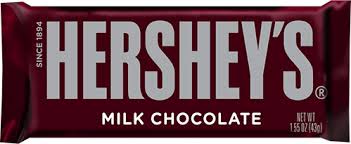As I rode on the train back to Washington today, The Hershey Company announced its strengthened commitment to zero deforestation for all the palm oil it uses. This is another of the welcome corporate statements, over the last several months and indeed the last few days, that have recognized business’ responsibilities to reduce the damage that they cause to the climate. I’m particularly glad to see this one, for several reasons: because it’s a strong policy by almost every criterion; because UCS has been working with The Hershey Company for nearly a year, urging energetic and scientifically rigorous action; and because I’ve liked their chocolate bars for an awfully long time.
The policy that The Hershey Company announced puts it among the leaders in the industry in terms of eliminating deforestation, peat clearing and other kinds of climate damage from its supply chain. It applies to all its products in all its markets worldwide. It includes a commitment to tracing its raw materials back to their sources. It uses the High Carbon Stock (HCS) terminology, which clearly differentiates degraded land from forests that need to be preserved. It provides for monitoring of its progress by TFT, an independent third-party verifier. And it has specific target dates, in the relatively short term, for achieving these goals.

A Hershey bar — today, even better tasting. Source: Hershey.com
UCS—particular our Palm Oil Outreach Coordinator, Miriam Swaffer—has been talking with The Hershey Company for nearly a full year about this policy. We urged them to follow the science and the lead of the most advanced consumer goods companies, including competitors of theirs like Nestle and Unilever. And they have.
This has been another exciting week of important commitments by companies to end deforestation and protect the climate, including zero deforestation commitments from two major fast food brands, Dunkin and Krispy Kreme. Forty corporations (as well as UCS) are among the 150 signatories of yesterday’s New York Declaration on Forests, committing to cutting deforestation in half by 2020 and ending it by 2030.
 With 10% of global warming pollution coming from tropical deforestation, decoupling the production of commodities like palm oil from tropical forest destruction is one of the most efficient ways to address climate change. We’ve said before that the tide is turning against deforestation in corporate supply chains, and today that’s even more evident.
With 10% of global warming pollution coming from tropical deforestation, decoupling the production of commodities like palm oil from tropical forest destruction is one of the most efficient ways to address climate change. We’ve said before that the tide is turning against deforestation in corporate supply chains, and today that’s even more evident.
The Hershey Company can still improve its policy by committing to tracing all its palm oil, from all its suppliers, to the plantation where it was grown (the current statement goes most of the way there, tracing palm oil considered most at risk to this level). But it has taken an important step forward, leading consumer goods companies toward a new relationship with our climate. Now it’s time for companies that are still lagging—for example, McDonald’s, Burger King and Yum! Brands—to move quickly to catch up. Tell McDonald’s, that for the sake of our atmosphere, tropical forests and endangered species – the time to act is now.
